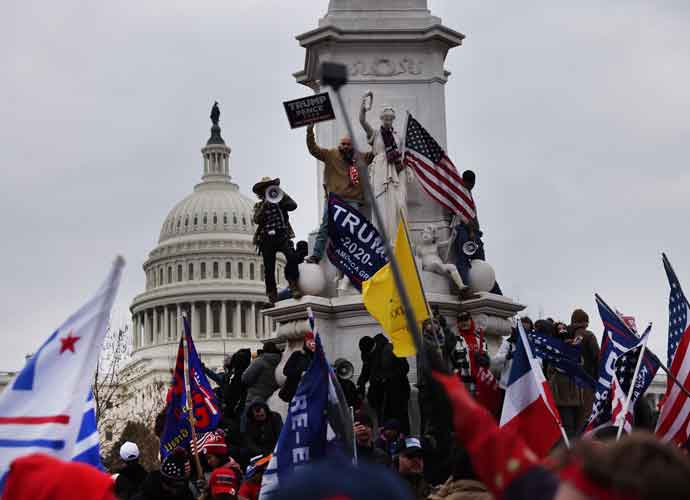Judge Orders Trump Ally Rep. Scott Perry To Hand Over Hundreds Of Text Messages Sent During Jan. 6 Capitol Riots
A federal judge ruled on December 19 that Rep. Scott Perry (R-Pennsylvania) must hand over the 1,659 messages to federal investigators.
The judge found that the communication records had not been protected by the “speech and debate” clause of the U.S. Constitution.
This court order is the most recent twist in the investigation of the January 6 Capitol riots, which has made its way through courts for months and implicated Perry.
His phone was seized by the FBI in late 2022 as part of the federal investigation into the efforts to interfere with the 2020 election’s certification.
This happened before Jack Smith had been appointed special counsel.
The investigators sought out a second warrant so that they could access Perry’s data. But they had to wait after Perry claimed protection under the Constitution’s “speech and debate” clause for more than 2,219 records.
Perry stated that he was angered by the seizing of his data and asked that it be returned to him.
The judge’s order had been mostly upheld by the appeals court.
Despite this, the judge still ruled that “speech and debate” protection could apply in some circumstances that the lower court turned down. This required another review of the records from the district court.
Chief Judge James Boasberg said that 396 of Perry’s records should be protected by the “speech and debate” clause.
Boasberg stated that the remaining records, such as the messages about alleged election fraud and the role of the vice president in certifying the electoral vote count, need to be turned over.
“Having now analyzed each of the 2,055 documents still at issue, the Court will order Perry to disclose 1,659 of them, but not the 396 others,” Boasberg stated within the 12-page filing.
Perry used his cell phone in communications that the government believes could be important to its investigation into the Capitol attack.
One argument that was mainly rejected in the latest court filing was Perry’s belief that the Constitution’s “speech and debate” clause had protected him from the government searching his communications.
The clause protects a member’s speech in a legislative session. The December 19 filing suggests that this clause has also been understood to protect speech beyond the session.
Perry has faced a great deal of criticism for his actions after the 2020 presidential election. The January 6 committee in the House previously acquired some of his text messages, showing that he asked former White House Chief Of Staff Mark Meadows about a conspiracy theory about the 2020 election.
On December 20, a lawyer defending Perry declared in a statement that the congressman was obligated to investigate claims of inconsistencies in the 2020 election.
“We are reviewing how the district court applied the standards required by the [Washington] D.C. Circuit and will decide whether to seek further judicial review,” Perry’s lawyer, John Rowley III, declared.
Former President Donald Trump pleaded not guilty on August 3 to the four federal charges around the conspiracy to overturn the 2020 election and the Capitol riots.
The charges were conspiracy to defraud the United States, conspiracy to obstruct an official proceeding, obstruction of an official proceeding, and conspiracy against rights.
RELATED ARTICLES
Get the most-revealing celebrity conversations with the uInterview podcast!









Leave a comment